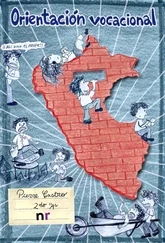We’d especially like to thank:
Michelle Upchurch
Ed Sweeney
Siegfried Halbreich
Sean Mozal
Marlon West
Barry Dennen
Mark Protosevich
Irene Baran
Brad Brock
Joe Kusek
Sarah Aspen
And our wonderful editors at AMACOM Books: Bob Nirkind and Mike Sivilli

PART I
DRANCY

CHAPTER 1
Drancy, January 1944: A door slammed. I turned and found that Stella and I were now all alone. A searchlight’s beam passed by the rain-drenched windows. Stella’s damp, red hair was matted against her forehead and hung in rattails down her neck. Tears had dulled her blue eyes.
The guards’ shrill whistles and the murmur of fellow prisoners shuffling into formation outside bounced off the whitewashed walls.
Stella buried her face against my shoulder. Her body shook. I held her closer so she wouldn’t notice my own tremors. I pressed my mouth to her neck and found her racing pulse beating under my lips.
It was time to go. No sense getting dragged and kicked down two flights of stairs. I gently pried Stella’s arms from around my neck and picked up my blanket roll and burlap bag of clothes.
Strewn about the floor were vermin-infested mattresses, one of which had been my bed.
Neither of us spoke as we moved down the empty corridor. One wall was covered with old and newly scrawled farewell messages to loved ones not yet rounded up. I counted my footsteps in a vain attempt not to think about what was coming.
Going down the stairs, I wanted to comfort Stella, give her hope, but I kept silent. There wasn’t a reassuring word I could squeak out with any conviction.
We walked out into the rain. Stella squeezed my hand at her waist. Standing before us in the cinder-lined courtyard were our traveling companions, twelve hundred prisoners of the Third Reich.
Stella’s parents eagerly waved to her from the edge of the throng. Without a word, she released my hand and ran to them. I watched her hug her mother and father and wished I had kissed her. The tears I had held back in her presence now mixed with the cold rain.
“Hey, Pierre, are you coming or not?”
“What are you waiting for?”
My friends were calling. There had been fifty of us, single men and a handful of teenagers like myself, living in that barren second-floor room, and now we would travel together on the train. We had been snatched up from all corners of France. Some of us were members of the Maquis (French Resistance). Others had been shipped in from other camps or prisons. Many had been awakened in the middle of the night, swept away as they were, and then were stunned to find themselves staring at freedom from behind barbed wire in the Paris district of Drancy. The Germans had transformed a half-finished apartment complex into a transit internment camp from where all “undesirables,” mainly Jews, were deported to vari-ous Nazi concentration camps east of the Rhine.
As I trotted over to my pals, the wind carried snatches of voices singing songs of the maquisards (Resistance fighters). Many more voices joined in the singing of the “ Marche de Lorraine ,” a hymn of the “Free French,” and “ La Marseillaise ,” the French national an-them. I stared contemptuously at the SS in their field gray uniforms as they let loose random volleys of submachine gunfire in attempts to intimidate us. The gendarmes (French military police) and gardes-mobiles (French federal police) stood motionless in their warm coats.
I joined in the singing of our version of “ Le Chant des Marais.”
“ Le printemps refleurira, Liberté, Libertećheŕie Je dirai: Tu es à moi.”
( But one day in our lives, s pring flower, freedom, cherished freedom, I will say: You are mine. )
Others took up the chorus. “ Piocher, piocher .” (Swing a pick axe, swing a pick axe.)
The roar of diesel engines drowned out our voices. Pulling into the courtyard with their headlights barely piercing the morning fog, the Paris buses looked like milky-eyed monsters hungry for new bones to mash. This is finally it, I said to myself.
Drancy had been the scene of much misery, but it was where I nevertheless had spent some of the happiest moments of my eighteen years. I craned my neck for a glimpse of Stella, but had no luck.
I looked over at the camp’s shithouse, Le Château, and wondered if a new arrival would find a sliver of good fortune when inheriting my duties as the lord of that rank domain. Behind Le Château was the building where we had been searched the evening of our arrival.
Stella had a small gold coin, her good luck charm, that she didn’t want to lose, so while we waited our turn to be frisked I hid it in a piece of bread I had saved. She squeezed my hand when I returned the keepsake the next day.
Across from that building were the rooms where they housed the new arrivals. No light shone in the windows, but I was sure that shadowy figures were pressing their faces to the grimy panes of glass, wondering when their time would come. That had been my thought as I watched a group being herded out my first night. I had hoped with all my heart that I wouldn’t be forced onto one of those buses, but I quickly learned that, from behind barbed wire, hope hardly ever brought more than heartache.
A loaded bus drove by. Someone wiped their fogged-up window and waved to me.
“Stella, Stella!” I cried.
Instinctively I started after her, but a strong hand fell on my shoulder.
“Don’t, kid. You’ll see your Stella again,” Jonny murmured.
“You think so?”
“I’m sure.”
I turned to see the blue exhaust of Stella’s bus swirling at the gate.
My group began to board one of the buses. A Paris flic (French slang for a policeman) was seated beside the driver. Two gendarmes , shouldering rifles with fixed bayonets, guarded the rear platform. I sat down next to Jonny, who mopped his bald head with a red bandana. He was a former circus strongman, a Parisian Jew whose imposing build and calm manner had made him a natural leader in Drancy. It was rumored that he was the illegitimate son of a “doughboy” (WW I American soldier).
Jonny always had a good word to say to me when we passed each other in the courtyard and a joke to tell us all as we settled in for the night. He put his thick arm around my shoulder as I stared out the window.
“Let’s go!” shouted one of the gendarmes .
After making a sharp turn, our bus rumbled toward the exit.
Those still standing in the rain continued to sing.
“ Ô terre, enfin libre, Où nous pourrons revivre, Aimer! Aimer !”
(Oh earth, finally free, where we can again live and love! Love!) The gate swung open. A curly-haired boy furiously pedaling his bike shot by as our bus pulled onto the street. I had been riding my bike the day I got myself into this predicament.

CHAPTER 2
Nice, November 1943: One morning my friend Claude arrived at my house dirty, bloody, and out of breath. For several years he and I sat next to each other in school. I lost count of how many times we had been reprimanded for playing tic-tac-toe during lectures.
Читать дальше













